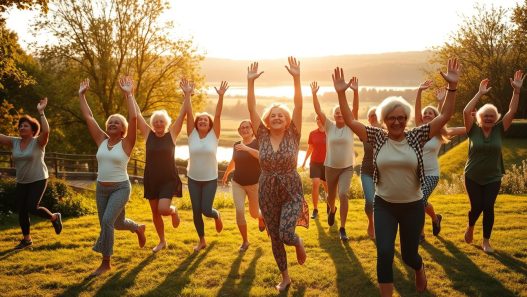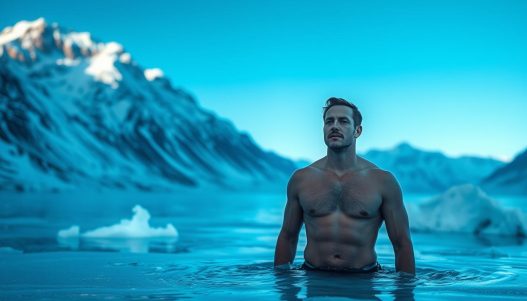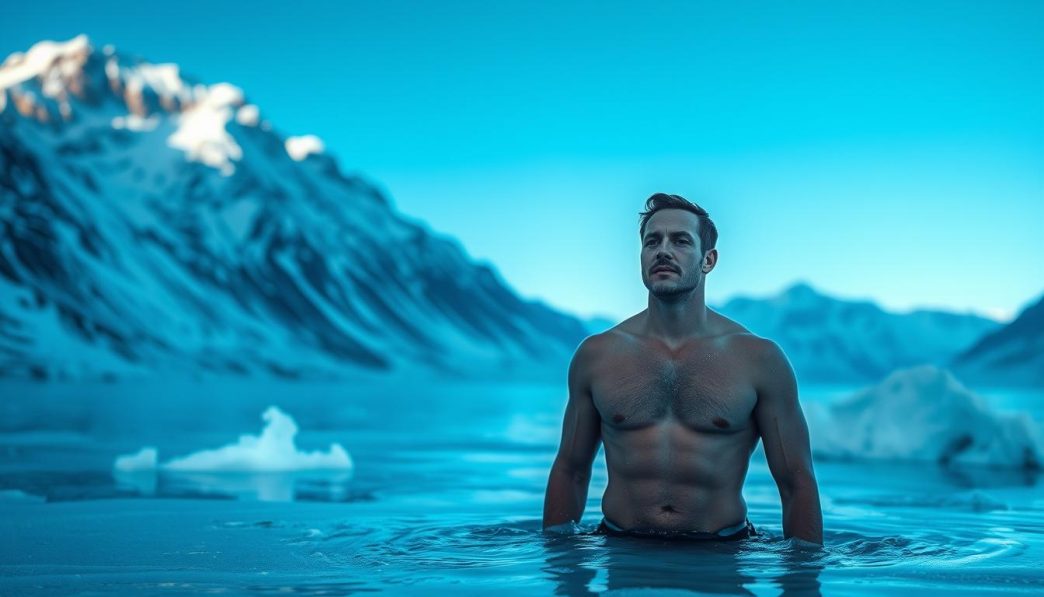Cold exposure therapy, also known as cryotherapy, has been gaining attention for its potential to enhance overall health and increase lifespan. By exposing the body to cold temperatures, individuals can stimulate various physiological responses that contribute to a longevity boost.
This therapeutic technique is not just about withstanding cold; it’s about harnessing its anti-aging benefits. Research has shown that cold exposure can improve cardiovascular health, enhance mental clarity, and even increase the release of certain neurotransmitters that help reduce stress.
As we explore the effects of cold exposure therapy, it becomes clear that this practice offers more than just a refreshing shock to the system; it has the potential to be a powerful tool in the pursuit of a healthier, longer life.
Key Takeaways
- Cold exposure therapy can stimulate physiological responses that enhance overall health.
- Regular cold exposure may contribute to a longevity boost.
- The practice has been linked to various anti-aging benefits, including improved cardiovascular health.
- Cold therapy can enhance mental clarity and reduce stress.
- Incorporating cold exposure into one’s routine may lead to a healthier, longer life.
The Ancient Practice with Modern Science Behind It
For centuries, cultures around the world have utilized cold exposure as a therapeutic practice, a tradition that modern science is now validating. The historical use of cold therapy is a fascinating tale that spans across various civilizations, each contributing their unique perspectives and methods.
Historical Uses of Cold Therapy Across Cultures
Cold therapy has been a staple in many ancient cultures. The Greeks and Romans used cold baths for therapeutic purposes, while in Japan, the practice of misogi, or cold water purification, has been a part of Shinto rituals for centuries. Similarly, in Nordic countries, cold water immersion has been a long-standing tradition for its invigorating and health-promoting effects.
The Resurgence of Cold Exposure in Longevity Science
In recent years, the scientific community has taken a keen interest in cold exposure therapy, particularly in its potential to enhance longevity. Research has shown that cold stress can activate certain biological pathways that contribute to increased resilience and potentially even lifespan extension. This resurgence of interest in cold therapy is backed by modern studies that validate its benefits, creating a compelling link between ancient practices and contemporary health science.
The intersection of cold therapy and longevity science represents a fascinating area of study, where ancient traditions meet modern research. As we continue to explore the benefits of cold exposure, we uncover new insights into how this simple yet powerful practice can contribute to a longer, healthier life.
How Cold Exposure Triggers Longevity Pathways
Recent studies have shed light on how cold exposure can trigger various longevity pathways, offering a promising avenue for enhancing healthspan and lifespan. Cold exposure is not just a simple stressor; it’s a potent stimulus that activates multiple cellular processes.
The Hormetic Stress Response
Cold exposure induces a hormetic stress response, a phenomenon where mild stress triggers a protective response in cells. This response is characterized by the activation of various cellular pathways that enhance resilience and promote longevity. As Dr. Rhonda Patrick, a renowned expert in cold exposure, notes, “Hormesis is a fundamental biological principle that allows organisms to adapt to stress.”
“Hormesis is a fundamental biological principle that allows organisms to adapt to stress.” – Dr. Rhonda Patrick
Cellular Adaptation and Resilience Building
Cold exposure leads to cellular adaptation through several mechanisms:
- Activation of stress-resistant pathways
- Enhanced cellular cleaning processes
- Increased production of cellular energy
Mitochondrial Biogenesis
One of the key adaptations is the increase in mitochondrial biogenesis. Mitochondria are the powerhouses of cells, and their increased biogenesis enhances cellular energy production and overall resilience. Cold exposure activates genes involved in mitochondrial biogenesis, leading to improved cellular function.
Cold exposure also triggers autophagy activation, a process where cells recycle damaged or dysfunctional components. This cellular cleaning process is crucial for maintaining cellular health and promoting longevity. By activating autophagy, cold exposure helps in removing damaged cellular components, thereby enhancing overall cellular function.
By understanding how cold exposure triggers these longevity pathways, we can better appreciate the potential benefits of incorporating cold therapy into our lives. The science is clear: cold exposure is not just about withstanding cold; it’s about building a more resilient and healthier body.
The Longevity Benefits of Cold Exposure Therapy
The therapeutic benefits of cold exposure on aging and longevity are becoming increasingly evident. Cold exposure therapy has been shown to have a positive impact on various physiological processes that contribute to aging and age-related diseases.
Research on Lifespan Extension in Animal Models
Studies on animal models have demonstrated that cold exposure can lead to lifespan extension. Research has shown that cold stress can activate certain cellular pathways that promote longevity and enhance overall healthspan.
Human Studies on Aging Biomarkers
In human studies, cold exposure has been associated with improvements in aging biomarkers, such as reduced oxidative stress and inflammation. These changes contribute to a more youthful physiological profile.
Epigenetic Changes and Biological Age Reduction
Cold exposure therapy can induce epigenetic changes that contribute to the reduction of biological age. By influencing gene expression, cold therapy can help in maintaining cellular health and promoting longevity benefits.
The cumulative effect of regular cold exposure can lead to significant improvements in overall health and potentially increase lifespan. As research continues to uncover the mechanisms behind cold exposure therapy, its role in promoting healthy aging and biological age reduction becomes more apparent.
By incorporating cold exposure into one’s health regimen, individuals can potentially harness its longevity benefits, leading to a longer and healthier life.
Metabolic Transformation Through Cold Therapy
Through cold therapy, the body undergoes several metabolic changes that enhance longevity. Cold exposure is a powerful stimulus that can transform how our bodies regulate energy, burn fat, and manage glucose.
Brown Adipose Tissue Activation
Cold therapy is known to activate brown adipose tissue (BAT), a type of fat that is highly metabolically active and generates heat. BAT plays a crucial role in energy expenditure and can significantly impact metabolic health. Activation of BAT through cold exposure can lead to increased energy expenditure and enhanced fat burning.
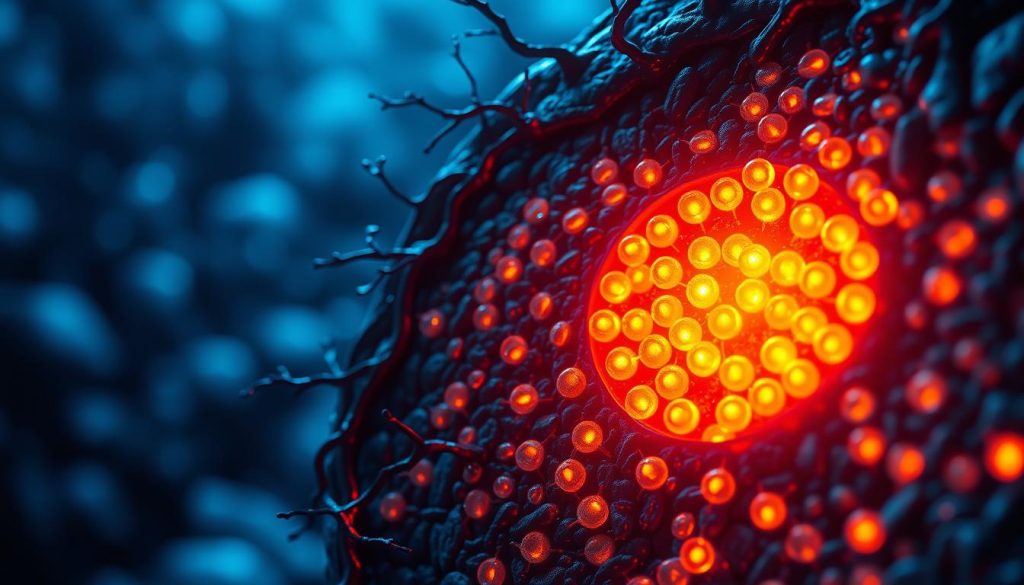
Enhanced Fat Metabolism and Weight Management
Cold exposure has been shown to enhance fat metabolism, aiding in weight management. By stimulating the breakdown of fats, cold therapy can help reduce body fat, particularly when combined with a healthy diet and regular exercise. This makes it a valuable tool for those looking to manage their weight.
Improved Insulin Sensitivity and Glucose Regulation
Cold therapy can also improve insulin sensitivity and glucose regulation. Regular cold exposure has been linked to better glucose metabolism, reducing the risk of developing type 2 diabetes. Improved insulin sensitivity means that the body can more effectively use insulin, leading to better blood sugar control.
The metabolic transformations induced by cold therapy contribute significantly to overall health and longevity. By incorporating cold exposure into one’s routine, individuals can potentially enhance their metabolic health, improve weight management, and reduce the risk of metabolic disorders.
Immune System Resilience and Inflammation Control
One of the most compelling benefits of cold therapy is its ability to bolster our immune defenses. Cold exposure has been shown to enhance immune system resilience and control inflammation, which are critical for maintaining overall health.
Cold exposure therapy achieves this through several mechanisms. Firstly, it helps in reducing chronic inflammation markers. Chronic inflammation is a known risk factor for various diseases, including cardiovascular disease and diabetes. By mitigating this inflammation, cold therapy can contribute to a reduced risk of developing these conditions.
Reducing Chronic Inflammation Markers
Studies have demonstrated that regular cold exposure can lead to a decrease in systemic inflammation. This is partly due to the release of certain anti-inflammatory cytokines when the body is exposed to cold stress.
Enhanced Immune Cell Function
Cold therapy also enhances the function of immune cells, making them more effective at fighting off infections. This is crucial for maintaining immune system resilience, especially during periods of high stress or when exposed to pathogens.
Stress Hormone Regulation and Immune Balance
Furthermore, cold exposure helps in regulating stress hormones, which in turn supports immune balance. The regulation of stress hormones like cortisol is vital because chronically elevated levels can suppress immune function.
A study published in the journal Neuroendocrinology found that repeated cold stress can lead to increased production of anti-inflammatory cytokines, further supporting the anti-inflammatory effects of cold exposure.
| Benefit | Description |
|---|---|
| Reducing Chronic Inflammation | Cold exposure decreases systemic inflammation by releasing anti-inflammatory cytokines. |
| Enhanced Immune Cell Function | Cold therapy improves the effectiveness of immune cells in fighting infections. |
| Stress Hormone Regulation | Cold exposure helps regulate stress hormones, supporting immune balance. |
As Dr. Wim Hof, a renowned expert in cold exposure therapy, notes, “The cold is a powerful stimulus that can awaken the body’s natural healing processes.” This awakening can lead to a more resilient immune system and better overall health.
Brain Health and Cognitive Protection
Cold exposure therapy is emerging as a powerful tool for improving cognitive function, protecting against neurodegenerative diseases, and enhancing overall brain health. This therapeutic approach has been gaining attention for its multifaceted benefits, ranging from the production of neurotrophic factors to mood enhancement and mental clarity.
Neurotrophic Factor Production
Cold exposure stimulates the production of neurotrophic factors, such as Brain-Derived Neurotrophic Factor (BDNF), which play a crucial role in the growth, maintenance, and functioning of neurons. Increased levels of BDNF have been associated with improved cognitive function and a reduced risk of neurodegenerative diseases.
Mood Enhancement and Mental Clarity
The therapy also has a profound effect on mood and mental clarity. The release of certain neurotransmitters, such as noradrenaline, during cold exposure can help alleviate symptoms of depression and anxiety, leading to an overall sense of well-being and improved mental acuity.
Potential Protection Against Neurodegenerative Diseases
Research suggests that cold exposure may offer protective benefits against neurodegenerative diseases, such as Alzheimer’s and Parkinson’s. The hormetic stress response triggered by cold therapy can enhance cellular resilience, potentially slowing down or even preventing the progression of these conditions.
- Cold exposure therapy enhances cognitive function.
- It stimulates the production of neurotrophic factors.
- Improves mood and mental clarity.
- May offer protection against neurodegenerative diseases.
By incorporating cold exposure therapy into one’s health regimen, individuals can potentially harness these benefits, leading to improved brain health and cognitive protection.
Cold Exposure Methods: From Simple to Advanced
From simple techniques like taking cold showers to more advanced methods such as using cryotherapy chambers, cold exposure therapy offers a range of options. This variety allows individuals to choose methods that best suit their lifestyle and comfort level.
Cold Showers and Face Plunges for Beginners
For those new to cold exposure, starting with cold showers is a common and accessible method. The sudden change in temperature can be invigorating and help increase circulation. Another technique for beginners is face plunges, which involve immersing the face in cold water to stimulate the dive reflex, potentially improving heart rate variability and reducing stress.
Ice Baths and Cold Water Immersion Techniques
Ice baths and cold water immersion are more intense methods that involve submerging the body in cold water. These techniques can be particularly effective for reducing inflammation and improving recovery after exercise. It’s essential to gradually acclimate to these methods to avoid shock.
Cryotherapy Chambers and Advanced Protocols
For the more experienced, cryotherapy chambers offer an advanced method of cold exposure. These chambers use liquid nitrogen to create extremely cold temperatures, which can be beneficial for reducing muscle soreness and improving mental clarity. Advanced protocols may involve specific temperature settings and exposure times tailored to individual goals.
Cold exposure methods can be tailored to suit various needs and preferences. Whether you’re a beginner or looking to advance your practice, there’s a cold exposure method that can help you achieve your health and wellness goals.
Building Your Personal Cold Exposure Practice
Building a cold exposure practice requires a thoughtful approach to maximize its benefits for longevity and overall health. To start, it’s crucial to understand the foundational elements that make up an effective cold exposure regimen.
Starting Safely: A Progressive Protocol
When beginning a cold exposure practice, it’s essential to start safely. A progressive protocol involves gradually increasing exposure to cold temperatures, allowing your body to adapt without undue stress. Begin with small changes, such as taking cooler showers or spending short periods outside in cold weather. As your body adapts, you can gradually increase the duration and intensity of your cold exposure.
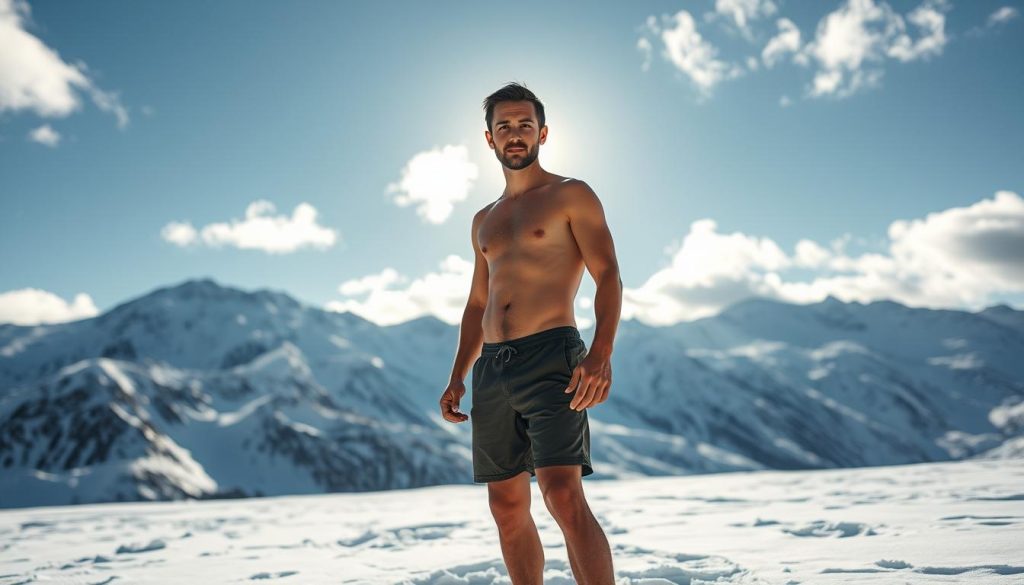
Optimal Timing and Frequency for Longevity Benefits
The timing and frequency of cold exposure can significantly impact its effectiveness for longevity benefits. Research suggests that regular, consistent exposure yields the best results. Consider incorporating cold showers or ice baths into your morning routine to boost your metabolism and mental clarity throughout the day. Experiment with different frequencies, such as daily or every other day, to find what works best for your lifestyle and physiological response.
Tracking Your Results and Physiological Markers
To ensure your cold exposure practice is effective, it’s vital to track your results and monitor physiological markers. Keep a journal or use a health tracking app to record changes in your energy levels, sleep quality, and overall well-being. Additionally, consider monitoring physiological markers such as heart rate variability (HRV) or inflammation levels to gauge your body’s response to cold exposure.
By following a progressive protocol, optimizing your timing and frequency, and tracking your results, you can create a cold exposure practice that enhances your longevity and overall health.
Safety Guidelines and Precautions
Embracing cold exposure therapy safely requires knowledge of medical contraindications, warning signs of cold stress, and when to seek professional help. While the benefits of cold therapy are substantial, it’s essential to be aware of the potential risks and take necessary precautions to ensure a safe and effective practice.
Medical Conditions That Contraindicate Cold Therapy
Certain medical conditions may make cold exposure therapy unsafe. These include, but are not limited to, heart conditions, Raynaud’s disease, and severe diabetes. Individuals with these conditions should consult their healthcare provider before starting any cold therapy regimen.
| Medical Condition | Risk Level | Precaution |
|---|---|---|
| Heart Conditions | High | Consult a cardiologist before cold exposure. |
| Raynaud’s Disease | High | Avoid cold exposure or use extreme caution. |
| Severe Diabetes | Moderate | Monitor blood sugar levels closely during cold exposure. |
Warning Signs of Cold Stress and Hypothermia
It’s crucial to recognize the warning signs of cold stress and hypothermia, which include shivering, confusion, and drowsiness. If you or someone else experiences these symptoms during cold exposure, it’s essential to warm up gradually and seek medical attention if symptoms persist.
When to Seek Professional Guidance
If you’re new to cold exposure therapy or have concerns about your health, seeking guidance from a healthcare professional is advisable. They can provide personalized advice and help you navigate any potential risks associated with cold therapy.
By being informed and cautious, you can safely incorporate cold exposure therapy into your longevity practice and enjoy its numerous benefits.
Real-World Success Stories and Research Findings
The use of cold therapy for longevity is not just a modern trend; it’s backed by real-world success stories. Researchers, centenarians, athletes, and biohackers have all reported benefits from incorporating cold exposure into their routines.
Longevity Researchers Using Cold Therapy
Notable longevity researchers, such as Dr. Peter Attia, have incorporated cold exposure into their personal health regimens. Dr. Attia has spoken about the benefits of cold showers and cryotherapy for mental and physical resilience.
Centenarian Populations and Cold Exposure Habits
Some centenarian populations, known for their longevity, have been observed to have habits that involve regular cold exposure. For instance, people living in certain regions with colder climates tend to have longer lifespans.
Athlete and Biohacker Experiences
Athletes and biohackers have also adopted cold therapy to enhance recovery and performance. For example, cold water immersion is a common practice among athletes to reduce muscle soreness.
| Group | Cold Exposure Method | Reported Benefits |
|---|---|---|
| Longevity Researchers | Cold Showers, Cryotherapy | Mental Clarity, Physical Resilience |
| Centenarian Populations | Natural Cold Exposure | Longevity, Overall Health |
| Athletes and Biohackers | Cold Water Immersion | Enhanced Recovery, Improved Performance |
The diverse applications of cold therapy highlight its potential as a universal tool for enhancing health and longevity. As more research emerges, the benefits of cold exposure are likely to become even more apparent.
Conclusion: Embracing the Cold for a Longer, Healthier Life
Cold exposure therapy has emerged as a powerful tool in the pursuit of longevity and overall well-being. By stimulating the body’s natural response to cold stress, individuals can unlock a range of benefits that enhance their physical and mental health.
Embracing cold exposure can be a simple yet effective way to improve health. From cold showers to cryotherapy, various methods are available to suit different needs and preferences. The key is to start safely and progress gradually, allowing the body to adapt and respond positively.
By incorporating cold exposure into their lifestyle, individuals can potentially extend their lifespan and improve their quality of life. The benefits of cold therapy, including enhanced metabolic function, improved immune resilience, and increased mental clarity, make it an attractive option for those seeking to take control of their health.
As research continues to uncover the full potential of cold exposure therapy, it is clear that embracing this practice can be a significant step towards a longer, healthier life. With its numerous benefits and relatively simple implementation, cold exposure is an accessible and effective way to enhance overall well-being.




